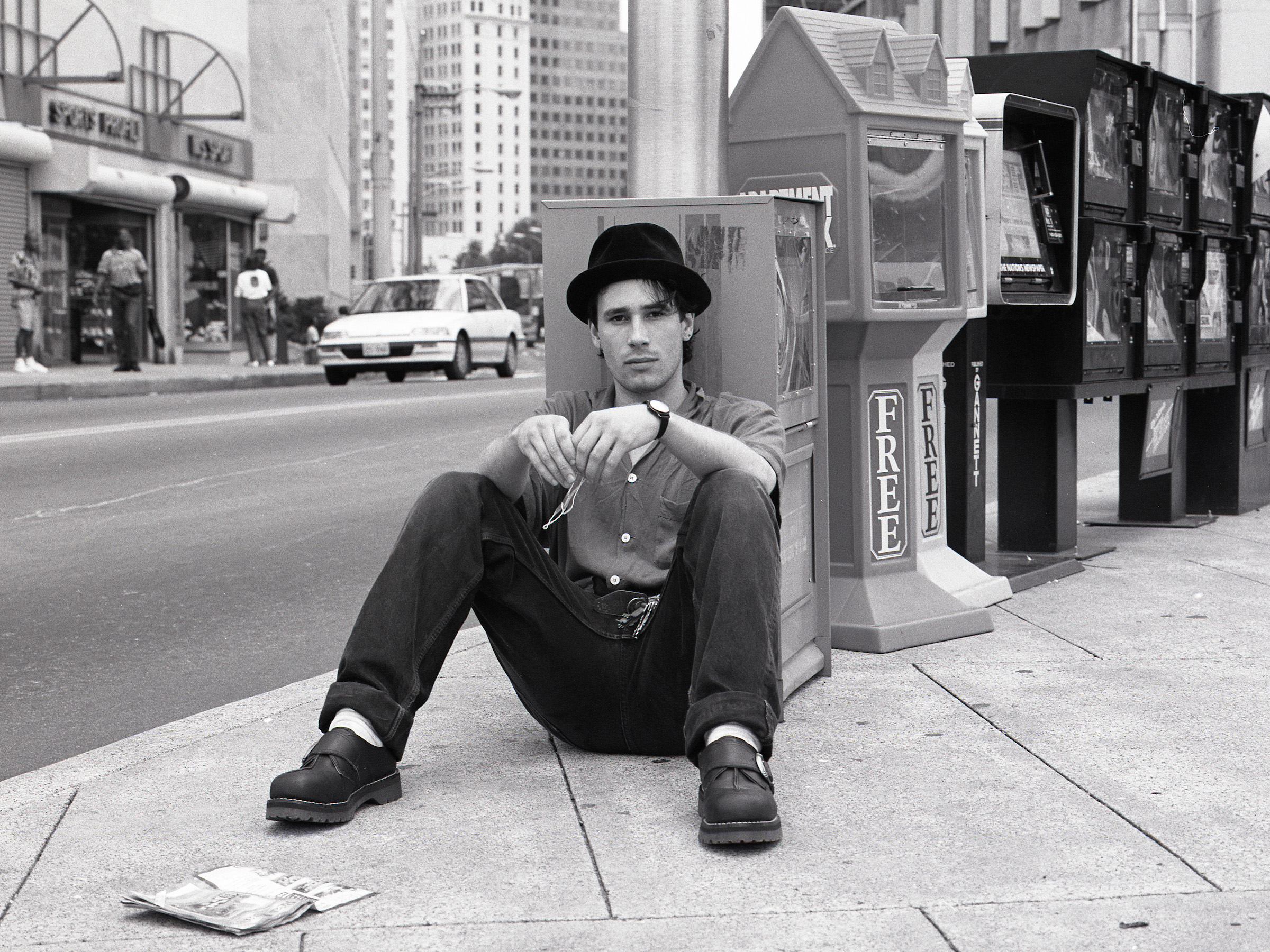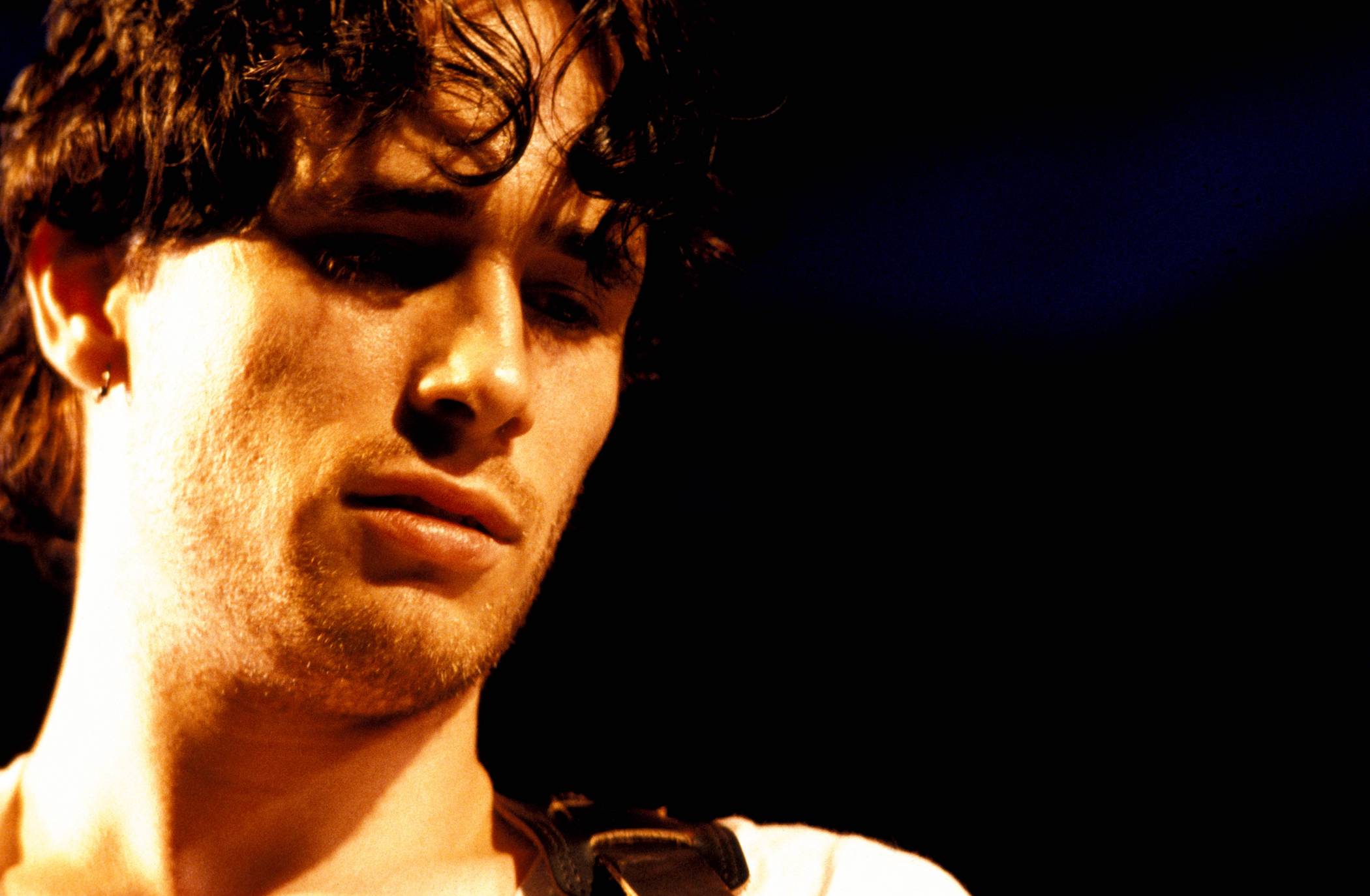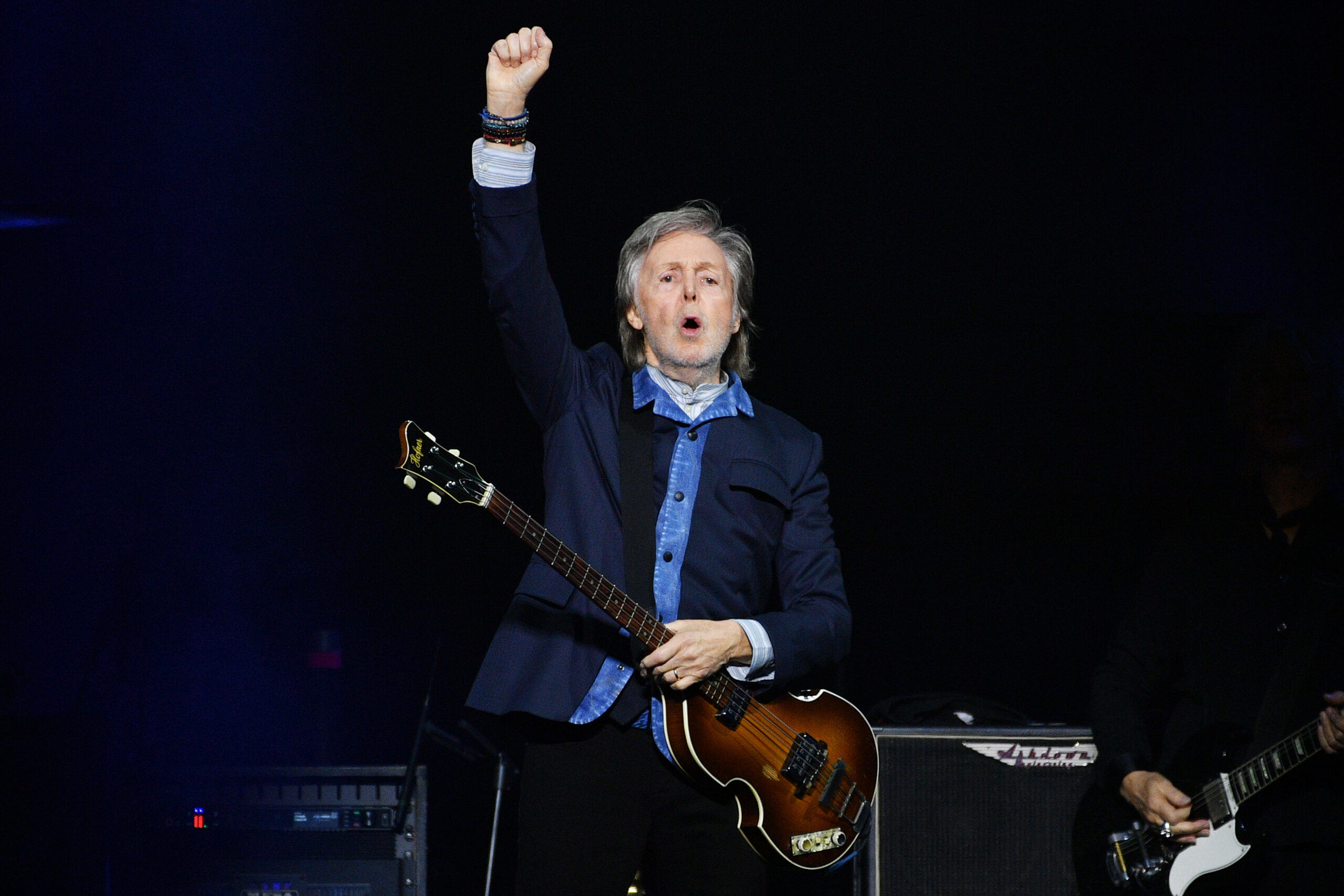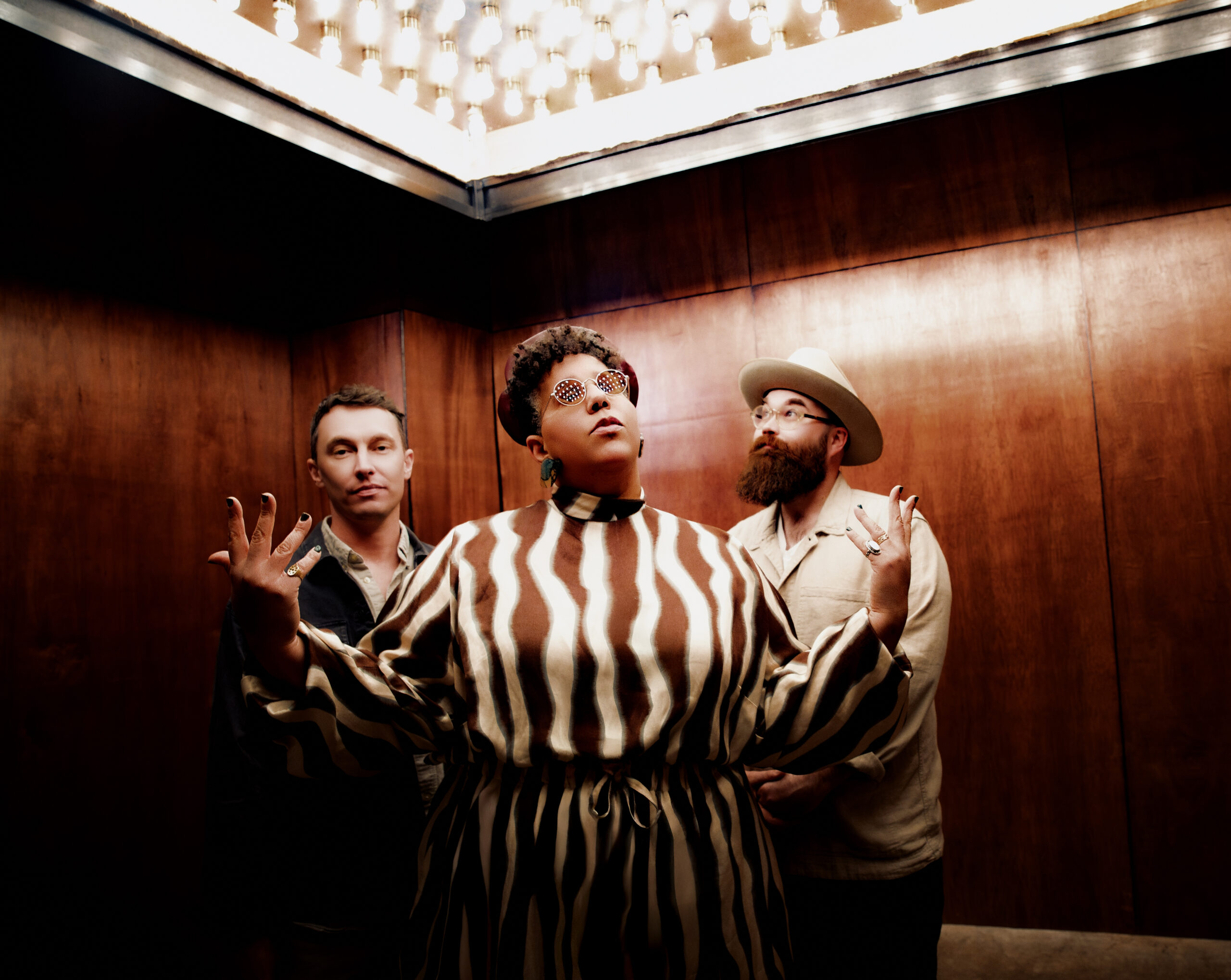Originally published in Uncut Take 227 [April 2016 issue], Uncut hears the inside story of how a genius singer-songwriter learned his craft via an eclectic songbook. “The goal,” says his A&R man, “was to allow him the time and space to find out which Jeff Buckley he was going to be…”
“A musical exercise in self-discovery”
Steve Berkowitz likens Jeff Buckley’s first solo recordings to a journey undertaken without any map or clear destination.
“It was a musical exercise in self-discovery,” says Berkowitz, who signed Buckley to Columbia in the autumn of 1992. “There was no plan. It was very loose, like a conversation in someone’s living room. Jeff would move around. Start, stop, start again. I remember he played a Curtis Mayfield song, and then I said, ‘Know any Sly?’ He sighed and said, ‘I don’t really know any Sly,’ but even as he’s saying it he’s forming chords and, I swear to God, what comes out is the ‘Everyday People’ that’s on this record. It was breathtaking.”
Almost a quarter of a century after the private “conversation” that took place at New York’s Shelter Island Sound studios in February 1993, some choice extracts are being made public. The third LP of archive recordings to emerge since his death in May ’97, You And I captures Buckley when he was 26, living in a “crappy walk-up apartment” in the Lower East Side with girlfriend Rebecca Moore, consuming music by day and performing in the city’s cafés, clubs and bars by night. “The creativity was just pouring out of him at that point,” says his manager, Dave Lory.
“It seemed spontaneous and unrehearsed”
Buckley had made an appreciable early impact at the “Greetings From Tim Buckley” tribute to his late father, held at St Ann’s Church in Brooklyn in April 1991. Following a brief stint in Gary Lucas’ psych-rock band Gods And Monsters, in the spring of 1992 he began playing solo spots around New York, most auspiciously at Sin-é , a tiny Irish bar in the East Village. Come late summer, limousines were lining St Mark’s Place, ferrying suitors from every major record company. Steve Berkowitz was one of them, although he preferred to walk.
“I was sucked in by his voice and guitar playing,” he says. “The way he was singing and playing these songs, which were mostly covers, seemed fully orchestrated. Yet it was casually done; it seemed spontaneous and unrehearsed.”
This constant promise of vaulting transformation is preserved on You And I. Hopping between electric and acoustic guitar, piano and organ, Buckley attempted around 40 songs over three days. The 10 tracks eventually selected for the album are by turns playful, illuminating, alchemical and deeply moving. There is raw slide-blues, smooth nu-soul and heart-stopping balladry. Alongside an embryonic version of “Grace”, later the title track of his 1994 debut album, are radically reconstructed versions of songs by artists as diverse as Sly Stone, Bob Dylan and The Smiths.
“Those sessions were spellbinding”
Throughout, the mood was relaxed. “There was a lot of good coffee going down,” says Berkowitz. “This is not a euphemism for drug-taking! We’re playing music and drinking coffee, and then we’re drinking a couple of beers, as well.” Towards the end of Led Zeppelin’s “Night Flight”, Buckley stops the song in its tracks, frustrated or distracted by something. The one new piece on show, “Dream Of You And I”, is little more than an extemporised sketch, prefaced by Buckley’s sweet, spoken-word explanation of the dream that inspired it. “It was a concert for two,” engineer Steve Addabbo recalls fondly. “Those sessions were spellbinding. That has nothing to do with his death or anything that happened subsequently. I felt the same way at the time.”
As the sole witnesses, Berkowitz and Addabbo were given a ringside seat at the birth of a legend. Now, joined by four more of Buckley’s intimates, they piece together the story of Jeff Buckley’s first steps towards greatness.
“He was capable of doing so much”
STEVE BERKOWITZ (A&R executive at Columbia): We signed Jeff in the autumn of 1992 with the understanding that he would have complete control of his music. That was in the contract. He was capable of doing so much, the initial goal was to allow him the time and space to find out which Jeff Buckley he was going to be: are we going to wait for this flower to bloom, or are we going to cut it off? My job was to give him time to bloom.
MICHAEL TIGHE (friend; guitarist in Buckley’s live band, 1994-1996): I can remember Jeff holding this thick record contract in his hand on the night he was doing a show at [Brooklyn arts venue] PS1. He was a little scared, but it was also pretty exciting. He knew Columbia could get his music out there, but he also knew he was very green as far as songwriting and developing his sound went.
BERKOWITZ: By early ’93, the record company is asking, “So, what are you doing?” Not much! We hang around a lot. He comes to my house for Christmas, he mimes Warner Bros cartoons with my son. We go to a lot of gigs, play a lot of music, drink a lot of coffee. He’s playing every bump and hole in the wall in the city, but four, five, six months after he signed, there are no plans to record. So I suggest to Jeff, “Why don’t we go into this nice studio with this guy I know, relax for a couple of days, play everything you know, and at the end you can pick out three or four things that can be the beginnings of an idea for an album?” And he said, “OK, let’s do that.”
“I still remember his intensity”
STEVE ADDABBO (producer and owner of Shelter Island Sound studios, New York): They needed a Table Of Contents session, just to put Jeff in the studio and see what he can do. I knew about his dad, but I didn’t know much about Jeff at that point. I still remember his intensity. He looked you straight in the eye. I’d done first records by Suzanne Vega and Shawn Colvin, and I knew the door he was going through. I didn’t want to impose myself, but I tried to make him comfortable. It’s not a huge studio. The recording area is maybe 20 feet by 16. The equipment went back to 1979 – it was vintage, tube mics and a lot of that old vibe.
BERKOWITZ: Steve had a beautiful studio, with good instruments and nice guitars. Jeff brought his Telecaster, I brought my Gibson ES-330, and he used one of Steve’s beautiful Guild acoustic guitars. There was no band. Nobody was going to tell him who his band was going to be.
ADDABBO: We set him up so he just could wander from instrument to instrument. He had an acoustic guitar station, an electric guitar station, a Wurlitzer electric piano, and we placed a mic in a harmonium, so he could go back and forth right away. He was using headphones most of the time, and we just let the tapes roll.
“I think Jeff felt the pressure”
BERKOWITZ: We get to the studio on the first day, and Jeff’s very tight. We don’t discuss it, but it’s clear he’s going, “Oh shit, I’m recording for The Man, every note I sing is going on tape!” You think about that once or twice and you’re not as present as you should be. I could always tell when he was nervous, because I thought his face was going to crack.
ADDABBO: I think Jeff felt the pressure. “Number one, I’m following in my father’s footsteps. Number two, I’m on Columbia, and there’s a lot of expectation.” Jeff took it all very seriously and to heart. He was not a flake by any means; he was very conscientious and serious about his work, maybe to a fault. He knew he was taking some big first steps, and I felt he was very aware of this impending machine coming along. Berkowitz was very nurturing. He was very aware of the delicacy of the situation.
BERKOWITZ: If you could hear the rest of the tapes from day one, a lot of it would be really aggravating, because it’s me sitting next to Jeff playing pencils, tapping on cups, and singing along. He’s tight. His voice isn’t opened up. So we drink some coffee, we drink some beer. We get to four or five in the afternoon and his eyes start to close, his voice starts to accelerate, and another octave appears. I slip out of the room and behind the glass. I’ve done my job, which was to aid him to become free of the circumstances and just play what he was feeling. By the end of the afternoon of the first day it was loose, and he was happy to be there. It’s, “OK, this is good, see you tomorrow.”
“It was part instinct”
ADDABBO: He’d come in around one o’clock and we’d work until eight or nine. He was performing and singing the whole time, so it was quite a long stretch each day.
DAVE LORY (manager, 1993-1997): He was all about the live stuff, not so much recording at that stage. He would jump off a cliff and I would say, “Have you got a parachute?” and he’d reply, “I think so!” It was part instinct, but mostly that he really knew what the hell he was doing. He was the only artist I trusted 100 per cent blindly.
ADDABBO: There was such an immediate emotional connection. When he started to sing he just went someplace else. He could go from a blues growl to an incredible soprano, Led Zeppelin to “Ave Maria”. He had the octaves! I had to make sure he wasn’t screwing up my mic settings, because he would go from a whisper to waaarrrgh. I’d go diving for the dials. It was pretty humbling to be in the vicinity and hear what he could do. I specifically remember wondering what path we should take, because he could do so much it was almost like a curse. To make a record you have to have an artistic direction, and he had so many facets. So that was part of the purpose of the sessions: “What do we have? What have I signed?” It was fascinating to be there.
“We let him do whatever he felt like”
BERKOWITZ: There was no plan. I had seen him play so many times, and as the sessions went on I was making a list of the songs he had done. I might suggest others, or he might bring something up. He would move around, he would start, he would stop, he would start again. I might say, “Wanna do it again? Wanna try it slower?” It was loose, like a conversation in someone’s living room.
ADDABBO: I was not producing him by any means. We were just letting him do whatever he felt like. A song wouldn’t necessarily be done the same way twice. It might be much faster, or slower, or he’d move his capo up. Sometimes he would just grab stuff out of the air and do something in a way he’d never done it before. “Just Like A Woman” was like that. He seemed to decide to sing it only after he’d started playing.
TIGHE: We had discovered Blonde On Blonde and Astral Weeks around that time. That’s when he was really getting into those records. I remember he was house-sitting for someone in the West Village, and we would listen to those albums all the time at her place. We also bonded over rural blues, particularly Bukka White. He played all these songs at his solo shows.
“A delicious exercise machine”
BERKOWITZ: “Calling You” was a very popular live song for him. The movie it was from [Bagdad Cafe] was kind of underground, but people knew the song. It was like a hit that hadn’t been a hit. Those beautiful vocal curlicues at the top of “Calling You” are part of him discovering his own voice and letting it fly. I call it the “Flying Buckleys”, his own version of that Roy Orbison or Tony Bennett [crescendo]. It was like a delicious exercise machine, that song. It felt like a great relief on his part to get that part of his voice going.
ADDABBO: Then it’d be on to The Smiths!
TIGHE: Jeff always thought that Morrissey was one of the best, if not the best, lyricists. He continued to do both of The Smiths’ songs on You And I with his band well into 1996. Sometimes at the end of a show he would throw in “I Know It’s Over” with “Hallelujah” as an encore.
“Spotify before Spotify!”
STEVE ABBOTT (label boss at Big Cat, which released the “Live At Sin-é” EP outside the US): He was a big Smiths fan. It was perfect for him, route one: intelligent/controversial lyrics, great guitar lines, and a character out front. He liked the British and Irish thing. He loved The Rolling Stones, he loved Pin Ups by Bowie; that was a record he knew backwards. And he loved punk, he loved British indie. At this time, he really loved Lush and the Cocteau Twins.
DAPHNE BROOKS (Author of Jeff Buckley’s Grace 33⅓): He was Spotify before Spotify! He had this vast archival memory, and the ability to stream it. What he did with all that material was synthesise it into a loving engagement. He was fearless in being willing to immerse himself in the moment of performance to see what he could draw out of it.
“An exquisite performance”
BERKOWITZ: He didn’t play cover songs. He played other people’s compositions and made them his own, consumed the idea and the feel. He was really a blues singer, I think – he had that religious depth of feeling that blues music has, or that Billie Holiday had. You can hear it on “Don’t Let The Sun Catch You Cryin’”, which is just an exquisite performance.
TIGHE: That song was also sung by Ray Charles, and there are some real similarities between Jeff and Ray, in that they were singers and musicians before they were songwriters. It was almost like they did tons of covers in order to get to their own badass songs. With Jeff, there wasn’t much original material at that point.
BERKOWITZ: He had written “Grace” with Gary Lucas, the guitar player in Gods And Monsters, before they split up. All the stuff Gary wrote [on guitar], Jeff was very capable of playing as well, as he did here, with those fast, repetitive riffs.
ADDABBO: He wasn’t confident about his songwriting at all. He relied on his covers; there were very few original compositions played throughout the three days.
“He was never one for going backwards”
BERKOWITZ: I heard him singing, “You and I, you and I.” I said, “What is that, where did that come from?” Click. Record. “Yeah, this was a dream…” and he started telling the story about a gay couple. This was a kind of verboten subject in 1993, but not in Jeff’s world. There are people dying of AIDS all around us in the Village. That was “Dream Of You And I”. It’s almost some kind of healing chant. I thought, ‘This is fantastic, this is going to be an opera,’ but of course, it’s just two minutes of his brain working! We kept thinking we would come back to it one day. We thought there would be many more days, we didn’t think they would get cut short. And he was never one for going backwards.
ABBOTT: Those formative years are all about his influences rather than his songwriting. He listened to so many things and managed to channel them into his talent and eventually come up with something that had his own stamp on it. Amusical magpie; he could imitate anything. He did a great Robert Plant, which you hear on “Night Flight”. And he did a grumpy Leonard Cohen. I remember he did a perfect Nusrat Fateh Ali Khan the night after first hearing him!
“It’s about the music, stoopid!”
LORY: If Jeff met you, he could mimic you within five minutes. He’d do impersonations of Beavis & Butthead on the tour bus, or of record company execs, and it was the same with music. He could pull the soul out of it. Even with the worst rap or country, he’d find the good in it. He was like a sponge. He’d always say, “It’s about the music, stoopid!”
ABBOTT: Music was his language. I can’t remember ever talking with him about much else. He was a big Guinness drinker, and we would meet at a bar called Tom & Jerry’s, which had a great jukebox. There he would ask how my daughter was, then it was, ‘Have you heard the new…?’ He sat around playing guitar all day, and listening to records and cassettes, he would devour them.
LORY: He was always playing music. If he wasn’t playing he was listening – or dancing, or singing. That was his escapism. Other people do drugs. He was a music junkie, very fun-loving, but there was a vulnerability. He never really had any roots as a child. You could sense his fear, his loneliness, and it made you want to protect him more.
“Californian punk-rock energy”
TIGHE: He perhaps became a little bit more withdrawn and melancholy later on, but in ’93 he didn’t come across as a person with a lot of pain. He was overjoyed and hyperactive. He had a lot of Californian punk-rock energy. Super-positive, tons of ideas. I’d come home from high school and he’d be vaulting over the couch with my toddler brother. He’d make these elaborate skits as an answering-machine message for him and his girlfriend, which would include the character of Spinach The Cat. It was this weird story that would last three minutes. He would even call me to do rehearsals: “Do you think I should do the Spinach voice like this…?”
BERKOWITZ: On the third day of the sessions, I remember Jeff finally saying, “OK, that’s it, let’s finish them.” Which meant I would listen to them and edit them down and say, “What do you think of these?” He’d say, “Forget those, but these are good,” or, “Let’s start to focus on this.” The idea was: pour it all out, record it all, and then he’d pick a few that he liked, and he could decide what was going to be the beginnings of the march towards his album. That was the goal. So this was not meant to be a big-deal recording session. In fact, as it was supposed to be a demo, it was cut straight to 16-bit DAT. That’s it! A little too much digital reverb, perhaps, but that was the times…
“A document of where he was at that time”
ADDABBO: There was no thought of it being released, it was just a scratch tape of what went down as we heard it at the time, but it’s a pretty clean recording. All in all, at the end of the third day we had seven and a half hours of recording. About five 90-minute DATs.
TIGHE: Talking to me, Jeff didn’t put a lot of emphasis on these sessions. It was just a document of where he was at that time. He was trying to sculpt that first album in his head.
BERKOWITZ: Afterwards, things start to speed up. Now Sin-é is crowded, we think he’s going to be a star. At the end of 1993 we start Grace. When we went in to record Grace it was going to sound like these You And I sessions or his Sin-é EP, but with some background musicians. That’s all it was going to be, until his brain went into overdrive: more vocals, more guitar, more developments! The ability was always there. We heard it at the Shelter Island sessions, and we knew he would bring it all one day, but we didn’t think it would be that early. With Grace, he allowed the switch to go on.
“A pathway to the record he wanted to make”
ADDABBO: It was very frustrating over the years to have these tapes on the shelf. I’ve been very protective of them, but I’m glad they’re coming out. It’s the magic of what we do, that we can hear Jeff like he’s still here.
BERKOWITZ: This was just a pathway to the record he wanted to make, but I’m happy that people get to hear it. It shows where he’s at before he becomes more polished and gets deeper into his groove. It’s a really great and important chapter. And you know what? If we’d stayed three more days, there would have been 40 other songs! You see, Jeff was never bad. He never sucked. And he could do anything.
The post Jeff Buckley’s first steps: “He’d always say, ‘It’s about the music, stoopid!’” appeared first on UNCUT.





